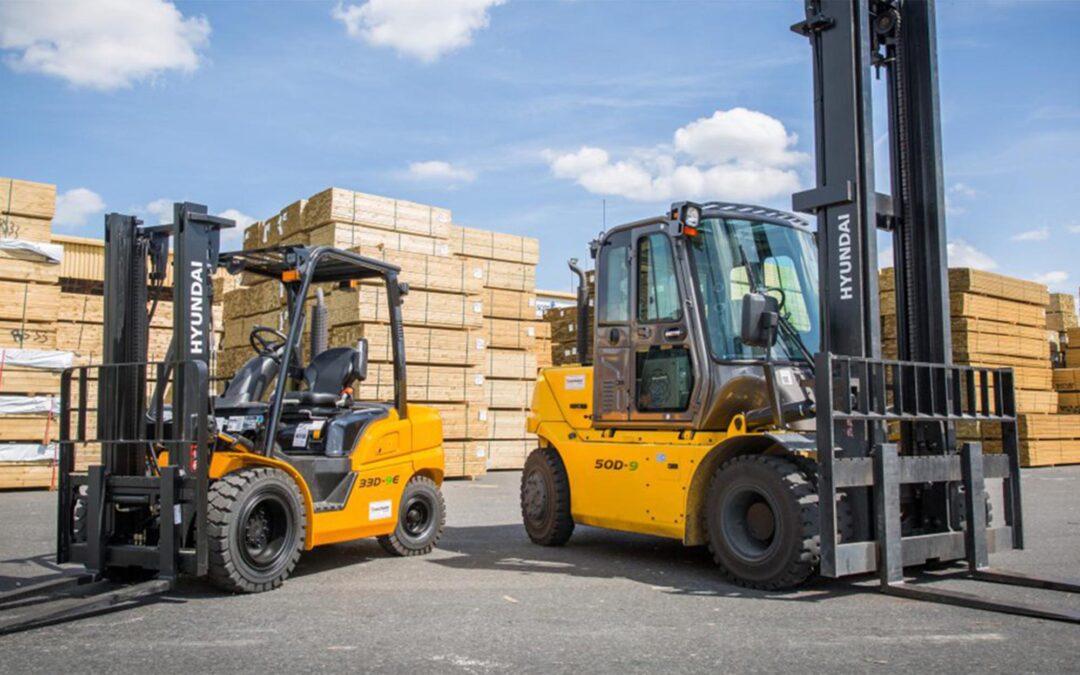When it comes to running a warehouse, construction site, or any industrial operation that involves heavy lifting and moving of materials, forklifts are indispensable tools. Forklifts come in various sizes and types to meet different material handling needs. However, not all businesses or individuals have the resources to invest in purchasing and maintaining forklifts. This is where forklift rentals come into play, offering a cost-effective and flexible solution. But to ensure a smooth on-hand forklift rental experience, there are some important tips to remember.
In this blog, we will explore the ins and outs of renting forklifts, covering key factors to consider, best practices, and helpful tips to make your forklift rental service experience as efficient and hassle-free as possible.
Forklift Rental Service Tips
Define Your Requirements
The first step in any successful forklift rental experience is clearly defining your requirements. Consider the following factors:
- Load capacity: Determine the maximum weight your forklift needs to lift. Different forklifts have varying load capacities, so knowing this is crucial to selecting the right one.
- Height and reach: Think about the height you need to lift materials. Forklifts come with different lifting heights, so choose one that meets your needs.
- Terrain: Consider the terrain in your working environment. Rough terrain forklifts are designed for uneven surfaces, while warehouse forklifts are for indoor use on flat floors.
- Fuel type: Forklifts can be powered by electricity, propane, or diesel. Choose the one that aligns with your working conditions and preferences.
Choose the Right Rental Provider
Selecting the right rental provider is crucial for a smooth experience. Do your research, read reviews, and ask for recommendations. Here are some key points to consider when choosing a rental provider:
- Reputation: Look for a provider with a strong reputation for quality equipment and customer service. This can save you time and trouble in the long run.
- Variety of forklifts: Ensure the rental company offers a wide range of forklifts to choose from, including different types and sizes.
- Maintenance and safety: Inquire about the provider’s maintenance and safety standards. Well-maintained forklifts are less likely to break down and cause delays in your operations.
- Rental terms: Review the rental terms and conditions carefully. Pay attention to rental duration, pricing, and any hidden fees.
Verify Operator Qualifications
Before accepting the rented forklift, performing a thorough inspection is crucial. This helps identify any pre-existing issues and ensures you receive a well-maintained, safe machine.
- Visual inspection: Check the forklift for visible wear and tear, damage, or rust. Ensure that the tires are in good condition and there are no oil leaks.
- Functional test: Test the forklift’s functions, including lifting, lowering, tilting, steering, and braking. Pay attention to any unusual sounds or malfunctions.
- Documentation: Verify that all necessary documentation, including the forklift’s maintenance history and operating manual, is available.
If you discover any issues during the inspection, be sure to report them to the rental provider and have them resolved before using the forklift.
Plan for Maintenance and Repairs
While the rental provider is responsible for maintaining their forklifts, you must be prepared for unforeseen maintenance or repair needs during your rental period.
- Communicate issues promptly: If you encounter problems or notice unusual behavior while using the forklift, immediately report it to the rental provider. Timely communication can prevent more significant issues from developing.
- Regular maintenance: Follow the schedule outlined in the forklift’s operating manual. Regular maintenance helps prevent breakdowns and ensures the machine runs smoothly throughout the rental period.
- Emergency contact: Ensure you have the rental provider’s emergency contact information readily available in case of any urgent issues or breakdowns.
Respect the Rental Agreement
Adhering to the rental agreement is crucial for a smooth experience and avoiding unexpected fees or legal complications.
- Rental duration: Be mindful of the agreed-upon rental term. Extending the rental without notice may result in additional charges.
- Fuel and maintenance: Follow the fuel and maintenance guidelines specified in the agreement. Failing to do so may lead to extra costs.
- Return conditions: Return the forklift in the conditions stipulated in the agreement. Ensure it’s clean and free of damage beyond normal wear and tear.
- Insurance: If you opt for insurance, make sure you understand the coverage and what is required in case of an accident.
Budget Wisely
Budgeting is an essential aspect of any rental experience. It’s easy to overspend if you’re not careful.
- Transparent pricing: Ensure you understand the pricing structure, including additional fees. Ask for a detailed breakdown of costs before signing the rental agreement.
- Calculate total costs: Consider all costs associated with the forklift rental, including rental fees, fuel, maintenance, insurance, and any taxes or fees. Having a clear budget will help you manage your expenses effectively.
- Plan for contingencies: Set aside a budget for unexpected costs, such as repairs or additional rental days due to project delays.
Forklift Rental Services From Leading Brands
Brennan has long-term partnerships that allow us to offer rental equipment from leading brands. Learn more about who we work with.
Forklift Rental Service Offered by Brennan
Your warehouse relies heavily on forklifts to maintain operations. Selecting a subpart company could lead to poor equipment quality, impacting your staff’s productivity.
As a leading equipment service provider, Brennan offers short-term and turnkey integrated forklift rental services for equipment, batteries, chargers, and attachments. We leverage our 60 years of experience to deliver the best parts to our clients.
Contact us today to learn more about our forklift rental service solutions.

